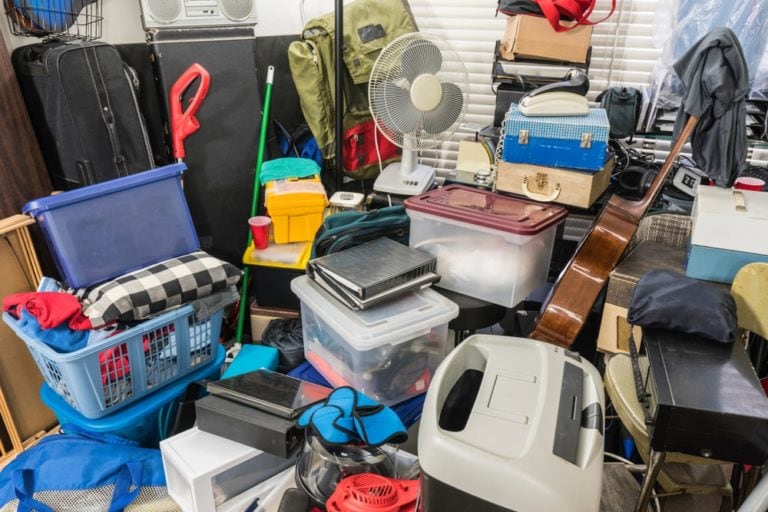Easy Come, Easy Go – Maybe!
For some seniors, the Easy Go part of this saying is impossible.
These are the seniors that have a hoarding disorder.
If you are looking at a home that seems to be stuffed with objects or housing an abnormal amount of pets, you are looking at a hoarding situation.
Yes, hoarding isn‘t always objects. In many cases, it is living, breathing animals, too.
It has been described as someone who compulsively buys and saves objects and/or animals even though they create health and safety issues in their home, affecting about 4% of the population.
Why Senior Adults Hoard
The reasons for senior hoarding syndrome are varied.
It is sometimes a side effect of depression. When some seniors are depressed or lonely, they will hoard items that remind them of happier times. The hoarded items provide the senior with feelings of relief and comfort while having to deal with all the effects of aging.
Sometimes the hoarding comes about because the senior gains a sense of control over failing physical or mental facilities. Sometimes it is the onset of dementia.
Symptoms of Hoarding Disorder
Be on the lookout for your senior relative who is a hoarder. Griswold has provided us with a list of things to watch for:
- “They start buying an excessive amount of things.
- They become emotionally stressed when you try to throw any items out.
- They will verbally or physically lash out at you when you try to throw something out.
- They demonstrate a desperate need to save something, even if it has no emotional or monetary value.
- An extreme amount of their home is taken up with clutter.
- They say that various items are being saved in case they will be needed in the future.
- They feel safe and secure when surrounded by their saved items.”
Having a Hoarding Disorder is Dangerous For Seniors
Senior hoarding is dangerous.
The resulting unsafe and unsanitary conditions will prevent a senior from being able to age in place.
The piles of objects create a risk of falling and fall-related injuries. It also prevents emergency care – firefighters or emergency medical technicians (EMTs) from being able to get through the house to reach them.
Since it is almost impossible to clean, hoarding also promotes many illnesses.
Their nutrition, hygiene, and medication are negatively affected because they are embarrassed to let anybody into their home and fear their stuff will be disturbed.
Unsanitary conditions are produced by spoiled food, which also leads to pests and foodborne illnesses.
There is always a hazard in the piles of old newspapers and magazines going up in flames.
How to Deal With a Senior With a Hoarding Disorder
In wanting to help a hoarder, the most important ingredient is trust. Once they trust you, you will be able to make progress.
Here are some tips from Blue Moon to help you deal with a family member with a hoarding disorder:
- Be patient.
- Clearly and often reiterate that you respect your loved one’s decisions.
- Don’t sneak anything you consider garbage out the back door, as they are certain to notice, and this will damage your relationship in the long run.
- Have realistic goals – This will be a long process – not a long, sweaty weekend of work, but more like a process that could take years. Set small, achievable goals, like cleaning off one shelf of a bookcase.
- Celebrate your wins – Once you clean off that bookcase, party! Acknowledge the success and how challenging it was for the hoarder to decide to get rid of things. Use positive reinforcement and focus on how safe, organized, and healthy you make the space.
- “In many cases, counseling for seniors is necessary for addressing the underlying emotional concerns that have caused the hoarding. The psychological roots of the issue can be incredibly complex, and overcoming these emotions is the best way to treat senior hoarding syndrome successfully.”
- Visit a doctor to ensure the behavior isn’t caused by dementia.
Kabb Law Is Here to Help
If you’re dealing with the challenges of a loved one with a hoarding disorder, don’t despair.
Most of all, you need to remember to: Be patient. Be companionate. Go Slow. And call us at Kabb Law: 216-991-5222 to talk to our social worker, an expert in this field who will be an enormous help to you and your family.

